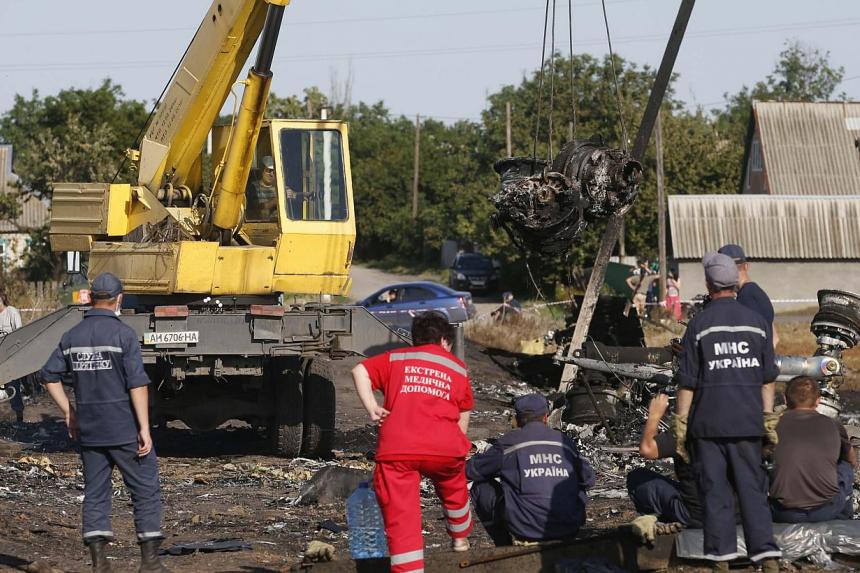The job of investigators from the Organisation for Security and Cooperation in Europe (OSCE) confronted with the grim wreckage of Malaysia Airlines Flight MH17 is fraught with challenges.
Due to the unique circumstances surrounding this case, investigators are not just trying to solve a giant whodunnit puzzle on evidence that has likely already been tampered with, but they are also dealing with a complex geopolitical mess.
Cynical observers might say this is an investigation with no right answer. And the complications start from as basic a question as who should conduct the investigation.
Normally, the country where the wreckage falls has exclusive jurisdiction. It would often also invite the country of the plane (Malaysia) and country of the plane manufacturer (United States) to participate as well.
But Mr Brian Jenkins, an aviation expert with the Rand Corporation in the US, says such lines are much harder to draw in the case of MH17.
"Why this gets complicated is that the rebels in eastern Ukraine do not recognise the government of Ukraine. I understand that the rebels did in fact recover the black box and have turned it over to the Russians," he says.
"The problem is if Russia has the black box, then people would be inclined to discount evidence provided or not provided by the black box.
"On their side, the Russians may argue that any investigation that involves the Ukrainian government and the US is likely to be a frame-up because they (the Russians) would want to frame the incident as an accidental shoot-down by the Ukrainian government or a deliberate shoot-down in order to frame the rebels and the Russians, to gain more support for Ukraine."
The global community has quickly called for a neutral team to lead investigations.
However, some acknowledge that there may be no party disinterested enough whose findings will not be challenged.
Just three days into the crash, both the Ukrainian and Russian propaganda machines have been running at full tilt - each blaming the other for the tragedy.
There have been widely conflicting reports on whether rebels have removed the flight recorder from the scene or if they are giving investigators access.
Both sides have also been quick to point fingers at each other.
And this is also what puts this case in uncharted waters.
Though planes have been shot down before, someone has always taken responsibility.
In the absence of that, there will be novel legal challenges for the airline and the families of the passengers.
The airline would try to convince the courts that it was not acting negligently in flying over a war zone. For passengers, making claims against the airline and to insurance companies would involve having to prove that the crash was an accident.
Says Mr Ron Goldman, veteran aviation lawyer with Baum, Hedlund, Aristei & Goldman: "In order to have a recovery, there has to be some reason to call it an accident rather than somebody's intentional conduct.
"If you can't call it an accident, it's difficult to lay blame or any kind of fault, even under the Montreal Agreement that lays out the rights of the passengers. That is something we may have to litigate. It has not been tested in court."

